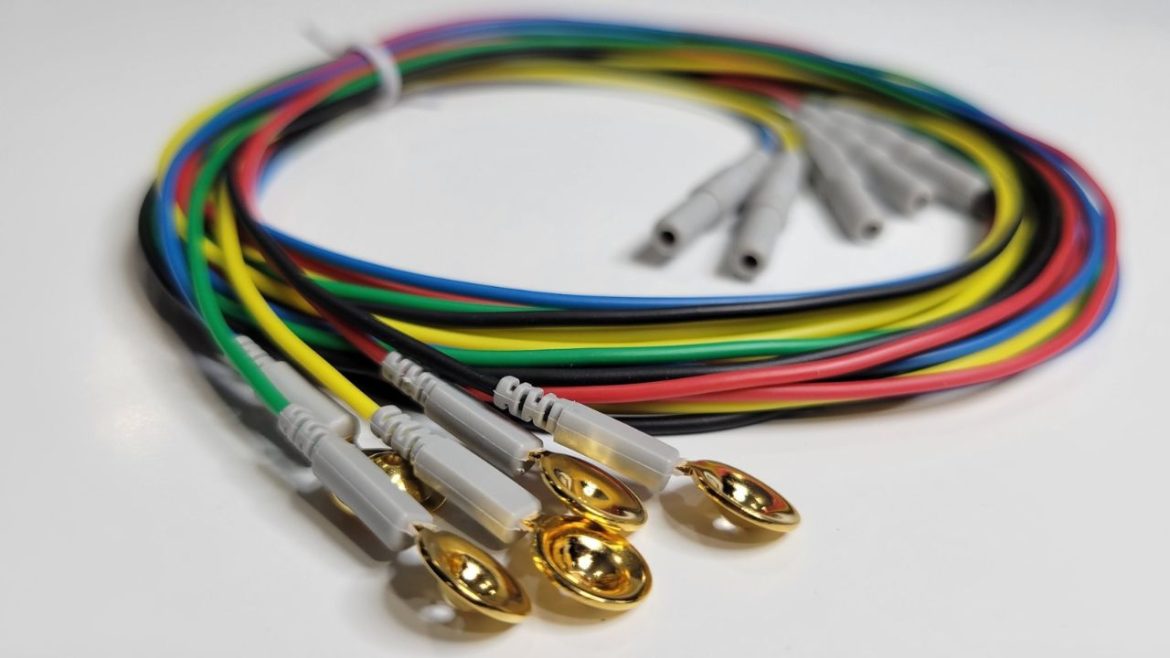Electroencephalography (EEG) is an essential diagnostic device in contemporary medicine. It offers significant information about the brain activity to be used in clinical and research purposes. The quality and the appropriateness of the lead wires and electrodes used are the main determiners of the efficiency of EEG recordings. The choice of the most appropriate type of EEG lead wire can thus be effectively important in the quest to have proper, reliable, and consistent data, and at the same time keep the patient comfortable. Medke, one of the most significant specialists in EEG lead wire production, puts much emphasis on a harmonious balance between technical accuracy and user-friendliness of their products, which enables practitioners to make informed decisions.
Signal Quality and Electrical Conductivity
Signal quality is one of the most critical in choosing EEG lead wires. EEG lead wires carry very delicate electrical impulses in the scalp to the recording apparatus, and therefore, they are very sensitive to interference. The conductor of the electrodes and wiring has a direct impact on the conductivity and fidelity of the signals. Indicatively, silver and silver/silver chloride (Ag/AgCl) electrodes are generally known to be good conductors of electricity with low noise, thus being the best in clinical and research environments. Ag/AgCl and silver EEG cables cast by Medke are designed to reduce signal loss in order to achieve correct readings in case of important diagnostic procedures.
Compatibility with EEG Devices
Another important factor is compatibility with other EEG monitoring systems. Lead wires are not always universal, and inappropriate cables may lead to a violation of safety and quality of recording. Medke offers various types of EEG cables, such as snap, alligator clip, needle type, and casted, that would easily fit into different devices used by OEMs and in clinics. By ensuring the proper kind of lead wire, the setup time is saved, as well as the eventual malfunction of the device is avoided, and the transmission of data is also efficient between the electrodes and the EEG recorder.
Electrode Type and Application
Lead wire is also dependent on the kind of electrode. Snap electrodes are easy to use in brief use and short-term monitoring, whereas needle-type electrodes can be useful in a place where an extremely accurate placement is required (e.g., research, invasive monitoring, etc). Alligator clips and casted electrodes provide a stable connection to allow prolonged recording and are commonly found in a clinical setting. Medke manufactures each of the above types of lead wire to suit particular clinical needs so that the practitioners can choose the most suitable ones depending on the purpose they are to be applied.
Patient Comfort and Safety
EEG may take a few minutes or a few hours, so the comfort of the patient is an essential consideration. Lack of adequate design of lead wires may result in discomfort, irritation of the skin, or even failure to abide by the electrode location. Medke is also concerned with making designs more ergonomic and more flexible in terms of wiring in order to make them comfortable during EEG recording. The insulated cables are soft and less prone to tangling or pulling, and the light construction ensures that they do not cause much discomfort in use, even during a long session. This attention to comfort does not affect performance, proving that the technical performance and the well-being of patients are compatible.
Clinical and Research Considerations
Lastly, the intended clinical/research application makes a contribution to the selection. Research High-density EEG mapping might need special lead wires that can conduct a signal over a great number of channels. Conversely, clinical EEGs performed regularly can be biased towards convenience, easy attachment, and comfort to the patient. Medke provides a complete product portfolio that serves both highly specialized research facilities and the general clinical care context, in order to make sure that a practitioner can find an appropriate solution to any situation.
Conclusion
The choice of the appropriate type of EEG lead wire is a delicate option between signal quality, compatibility with the devices, type of electrode, patient comfort, and durability, as well as application-specific needs. The variety of EEG cables produced by Medke proves that careful design and engineering thought can fulfill all those needs, offering reliable, accurate, and comfortable solutions to clinicians and researchers alike. Taking into account such primary aspects, medical workers can warrant the best EEG records, and as a result, better patient care, more accurate diagnosis, and research results.
